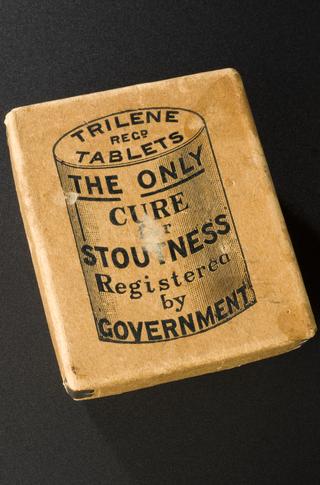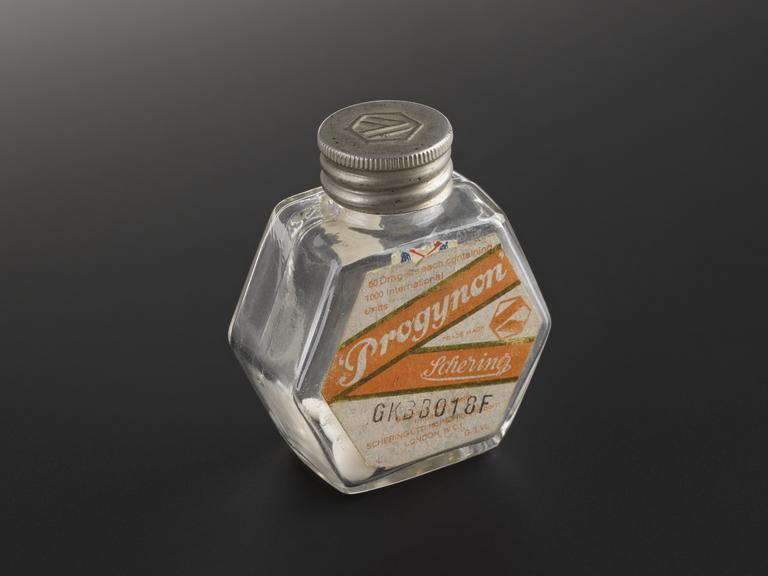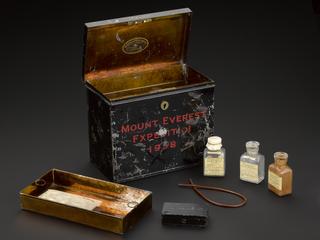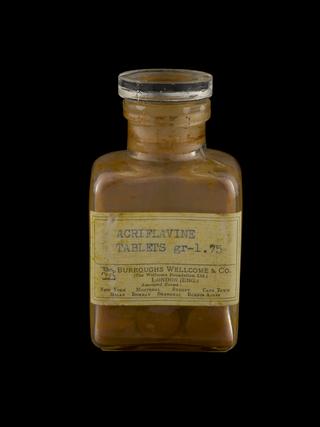
Glass bottle for 'Progynon' pills, United Kingdom, 1928-1948
- Made:
- 1928-1948 in United Kingdom








Glass bottle of "Progynon" pills, by Schering, German
‘Progynon’ is the brand name for a hormone supplement used to control symptoms associated with the menopause. These include hot flushes, severe mood swings and palpations caused by a change in the balance of sex hormones in the body. These pills would help restore the balance. ‘Progynon’ first appeared on the market in Germany in 1928. Initially the hormones used to make up the pills were expensive to purchase. In order to make the pills more affordable, Schering extracted the hormones from the urine of pregnant women.
Details
- Category:
- Materia Medica & Pharmacology
- Collection:
- Sir Henry Wellcome's Museum Collection
- Object Number:
- A629954
- Measurements:
-
overall: 55 mm x 46 mm x 24 mm, .04kg
- type:
- bottle

